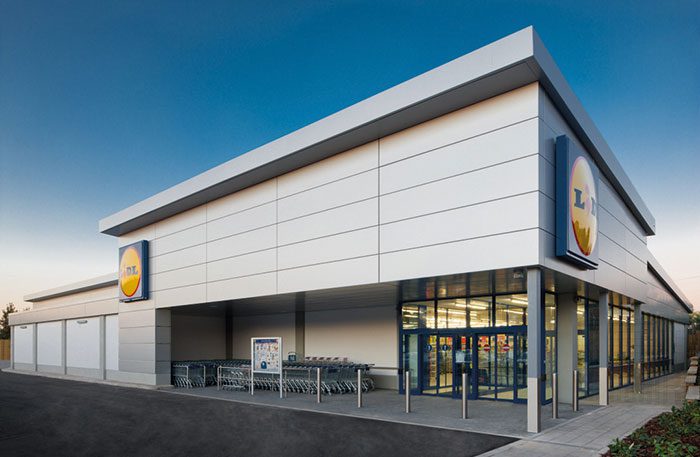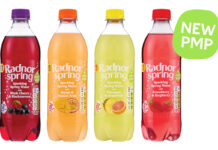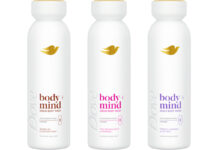
Symbols hold steady but supermarket decline goes on and price deals account for a third of sales.
£1 in every £10 spent in Britain’s food and drink retail market is spent in one of the two major discounters Aldi and Lidl.
And while the share taken by symbol and independent stores is said to be holding steady the giant supermarket chains continue to lose out as the discounters grow.
Kantar Worldpanel released its findings for the 12 weeks to 8 November and Nielsen published its figures for four weeks of trading to 7 November and both reflect the rise of the discounters.
Kantar says that the combined share of Aldi and Lidl has reached 10% of the British grocery market for the first time.
Fraser McKevitt, head of retail and consumer insight at Kantar, said that in 2012 Aldi and Lidl shared only 5% of the market and it had taken nine years to double their share from 2.5%.
He said: “In the last 12 weeks the two retailers have attracted another additional million shoppers compared with last year while average spend per trip has increased by 4% to £18.85, which is 78p ahead of the total retailer average.”
Among the major multiples, Kantar says Tesco sales were down by 2.5% while Morrisons saw sales fall by 1.7% and Asda recorded a 3.5% decline.
It was better news for Sainsbury’s who, along with Waitrose and the Co-operative, experienced an increase in sales.
Kantar said symbols and independents accounted for 2% of British grocery sales the same as 12 months earlier.
The Nielsen figures reveal that supermarkets suffered their biggest sales dip in over a year during the four weeks to 7 November.
UK head of retailer and business insight at Nielsen, Mike Watkins, said: “Sales value at the tills dropped 1.2% versus the same period a year ago. The last time it was lower was the four weeks ending 11 October 2014 when it was down 1.5%.”
The percentage of sales from items on promotion remained at 32%, suggesting retailers are still committed to substantial promotional activity.


















